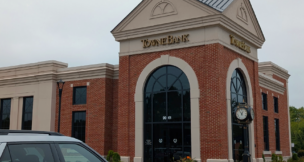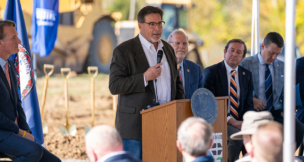Learning, with time, the wisdom of economic literacy
I was not much of a math student in high school and college. Actually, that’s a gross understatement. I avoided math like the plague.
I blamed my math phobia on a young middle-school teacher whose techniques were unconventional, even at a boys’ school in the mid-1960s.Each week, he rearranged the students’ desks in the order of the grades we had made on the last test. Those with the lowest grades sat on the last row. I was a frequent resident.
During class, the teacher would call on students to solve problems on the blackboard while he retreated to the back of the room with a piece of chalk in one hand and an eraser in the other. If you messed up, the chalk and eraser would come flying at the blackboard.
Years later, while cleaning out a desk at my parents’ house I found an unfinished letter that I had written in middle school. “Dear President Johnson,” it said. “Please draft my math teacher.”
I thought about my adolescent issues with numbers when I saw that this year’s Virginia high school graduates represented the first class in which all students passed a required, full-credit course in economics and personal finance.
The economic literacy course was the result of the efforts of a public/private partnership, which included the Virginia Council on Economic Education, the state Department of Education, the Federal Reserve Bank of Richmond, Virginia Bankers Association, Virginia Society of Certified Public Accountants and many businesses throughout the commonwealth.
In my opinion, the course is important for many reasons. Much has been said, for example, about the need to prepare a state workforce for STEM jobs (science, technology, engineering and mathematics). One way to interest students in these fields is to show them how the mastery of numbers makes a difference in their lives. Math is more appealing when it deals with the dollars and cents in your pocket. Also, high school graduates will need to have a familiarity with budgets if they want to land supervisory or management jobs. It would not hurt to understand as well the difference between costs and investments and the concept of return on investment.
An understanding of economics is also important in the roles we play as involved citizens. This year’s high school graduates likely will be able to vote in November’s legislative contests and next year’s presidential election. A lot of discussion will take place during the next 16 months about the proper role of government. Should spending on state and federal programs be expanded or curtailed? Should taxes be raised or lowered? What are the long-term payoffs of more money for schools and transportation or financial incentives for new businesses promising to create more jobs?
Finally, economic literacy should help these students manage the financial challenges they soon will face. Many will confront the burdens of student loans as they enroll in college. Do they understand the amount of debt they may accumulate over four years of college and perhaps more years of study in graduate school? Will student debt, in fact, dictate the careers they choose?
In addition, students will learn that they need to establish a record of credit that will allow them to purchase a car or a home. Soon after starting their careers, they will have to begin planning for their retirements because company pensions have become a thing of the past.
You might think these observations are ironic coming from someone who spent so many years avoiding any entanglement with math, but I mended my ways after college. A career in journalism doesn’t free you from dealing with numbers. I quickly had to learn the fundamentals of budgets to cover countless city council, county commission and school board meetings.
I also realized that I was more intrigued with business than I was with government. So I began taking business classes at a local community college and plodded my way through years of economics, accounting, marketing and management courses until earning an MBA at age 35 at the University of Richmond.
The path might have been simpler if I had taken a course in economics and personal finance in high school. That makes a lot more sense than trying to get your teacher shipped to Vietnam.
n
















